DS 7 Crossback: this premium SUV can see hazards at night that you can't
When the sun goes down, the DS 7 keeps on seeing
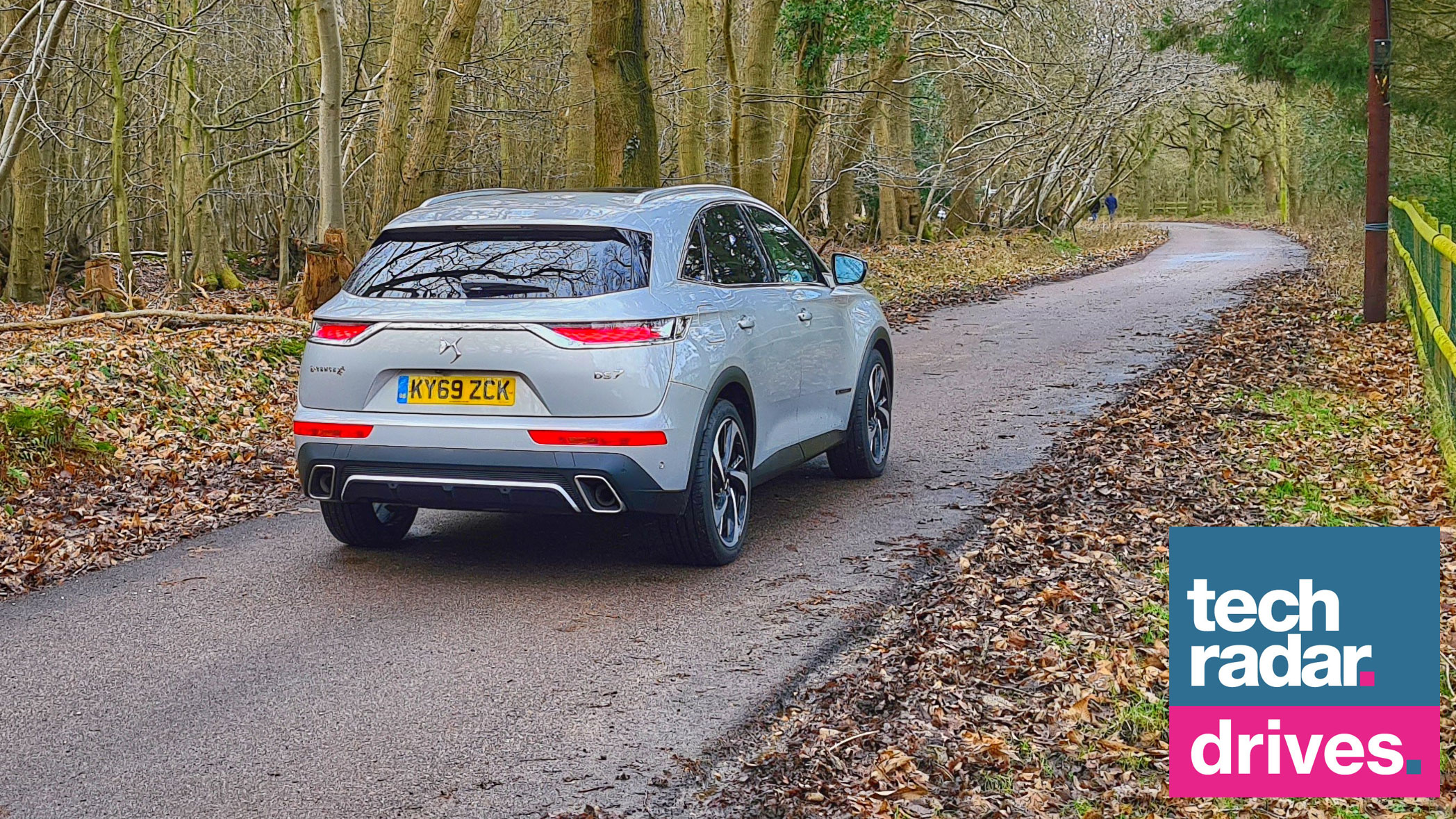
The DS 7 is a premium mid-size plug-in hybrid SUV that's taking on the likes of BMW and Audi as a comfortable, efficient traveler.
Boasting a host of tech options and the choice of a more economical plug-in hybrid drivetrain, the DS 7 offers up something a little different over the more household names in the SUV market.
The DS 7 price starts at £32,370 (there's no plug-in option for the entry level model), however we drove with the top-of-the-line plug-in hybrid E-Tense 4x4 Prestige which starts at £50,600. With optional extras included our on-the-road price was £59,020 - reaffirming the DS 7's position as a premium SUV.
- Renault Clio E-Tech Hybrid: a greener Clio that's still fun and functional
- Lexus UX: luxury self-charging hybrid comfort
- Audi Q5 TFSI e: Audi's plug-in hybrid SUV
DS 7 design
The DS 7 stands out a little from the usual SUV crowd, and during our time with it we saw a number of heads turned and fielded a few questions from passers by who inquired as to what exactly the car was.
DS is a brand which is still developing its presence in the UK, but it is clearly doing something right as the 7 was able to garner attention when out and about.
Climb inside and you'll find the front seats are situated in a spacious cabin, offering a good amount of head and legroom. The seats themselves are comfortable, and our DS 7 even came with a massage function, featuring a range of massage types and three intensity levels.
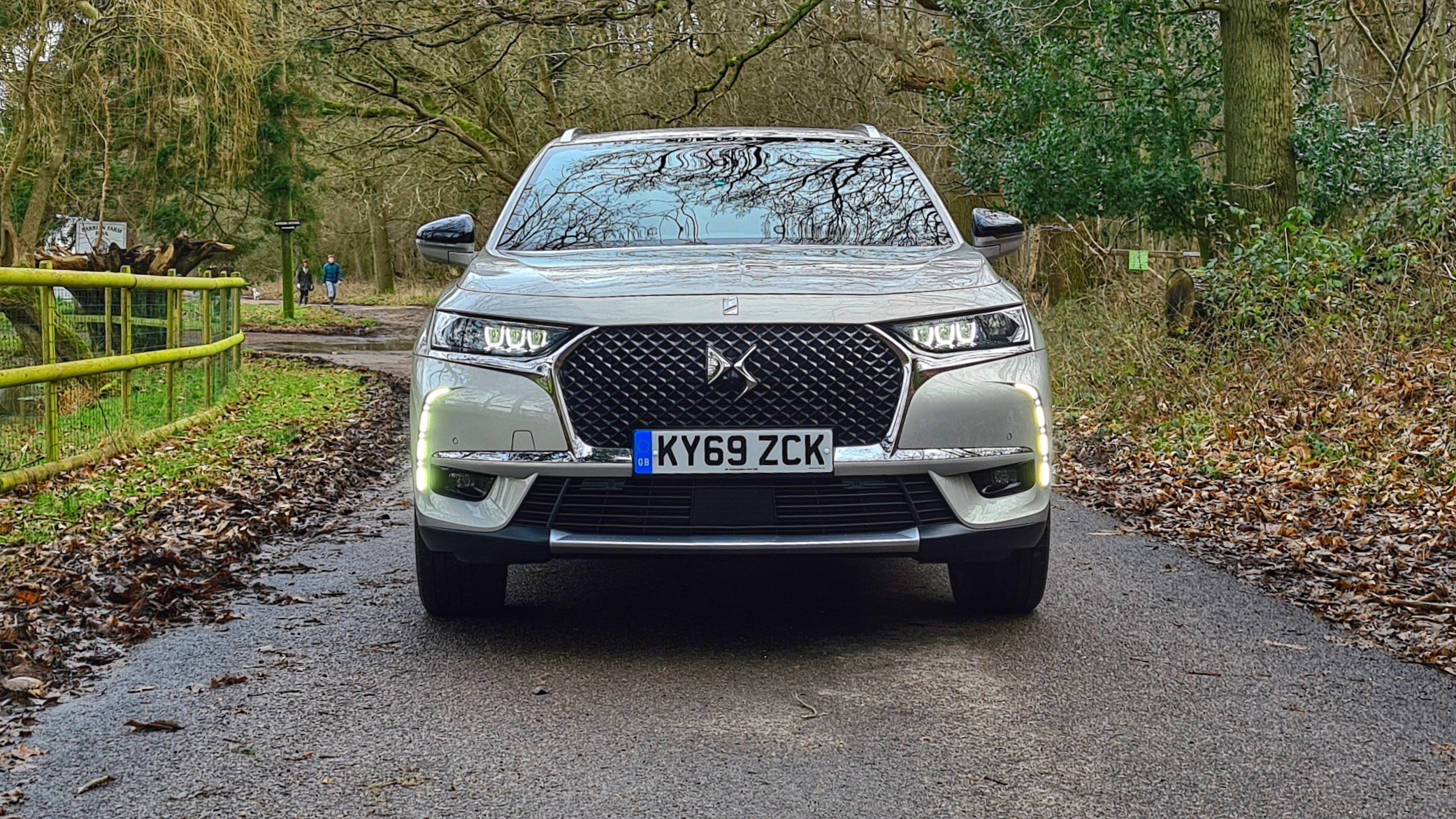
DS 7 Crossback E-Tense Ultra Prestige
Engine: 1.6L / 13.2kWh
Power: 197bhp / 80kW
0-62mph: 5.9 seconds
Top speed: 149mph
Electric Range: 34-40 miles
Price: £59,020
We didn't see the button for the massage function straight away, as it's a little hidden down the side of the front seats, but we were pleased when we did locate it as it worked well. The front seats in the top-spec DS 7 are also heated and ventilated, ensuring you can get yourselves to the perfect temperature, no matter the weather.
Get daily insight, inspiration and deals in your inbox
Sign up for breaking news, reviews, opinion, top tech deals, and more.
There's a decent amount of storage in the front too, with dual cup holders, a storage area under armrest and another, covered storage area at the base of the center console which also houses a wireless phone charging pad and USB port.
Unusually, you won't find any buttons or controls on the door panels of the DS 7. Instead, the electric window controls and central locking are housed on either side of the gear shift, while the wing mirror switches are to the side of the steering wheel.
These placements take a little getting used to - especially the windows - as you'll find you'll instinctively reach for the door to open or close your window. After a few trips out our muscle memory did show signs of slowly shifting - but it'll likely take time for the new positions to feel natural.
Things aren't quite as spacious for rear-seat passengers, with headroom for those over six foot at a premium. However, what the DS 7 E-Tense Ultra Prestige does offer rear seat passengers is the ability to electrically recline, which does provide a touch more headroom, at the expense of some legroom.
Rear seat passengers do get to benefit from their own climate controls and two USB ports, which are both useful features - plus there are magazine pockets on the back of the front seats, which go some way to making up for the small door pockets here.
There's a good size boot though, with 628 litres of capacity, which can be increased to a sizable 1,752 litres with the rear seats folded down.
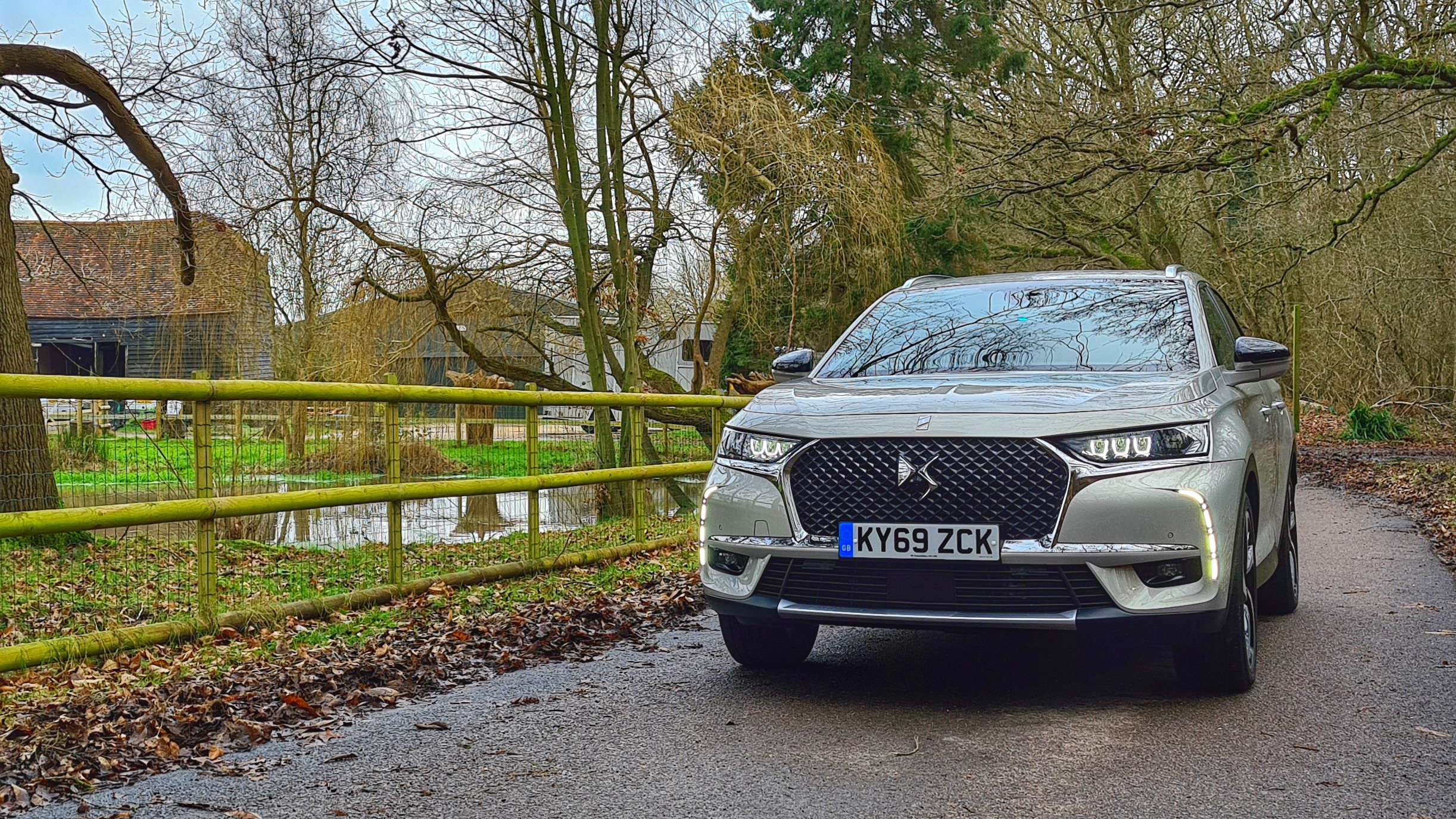

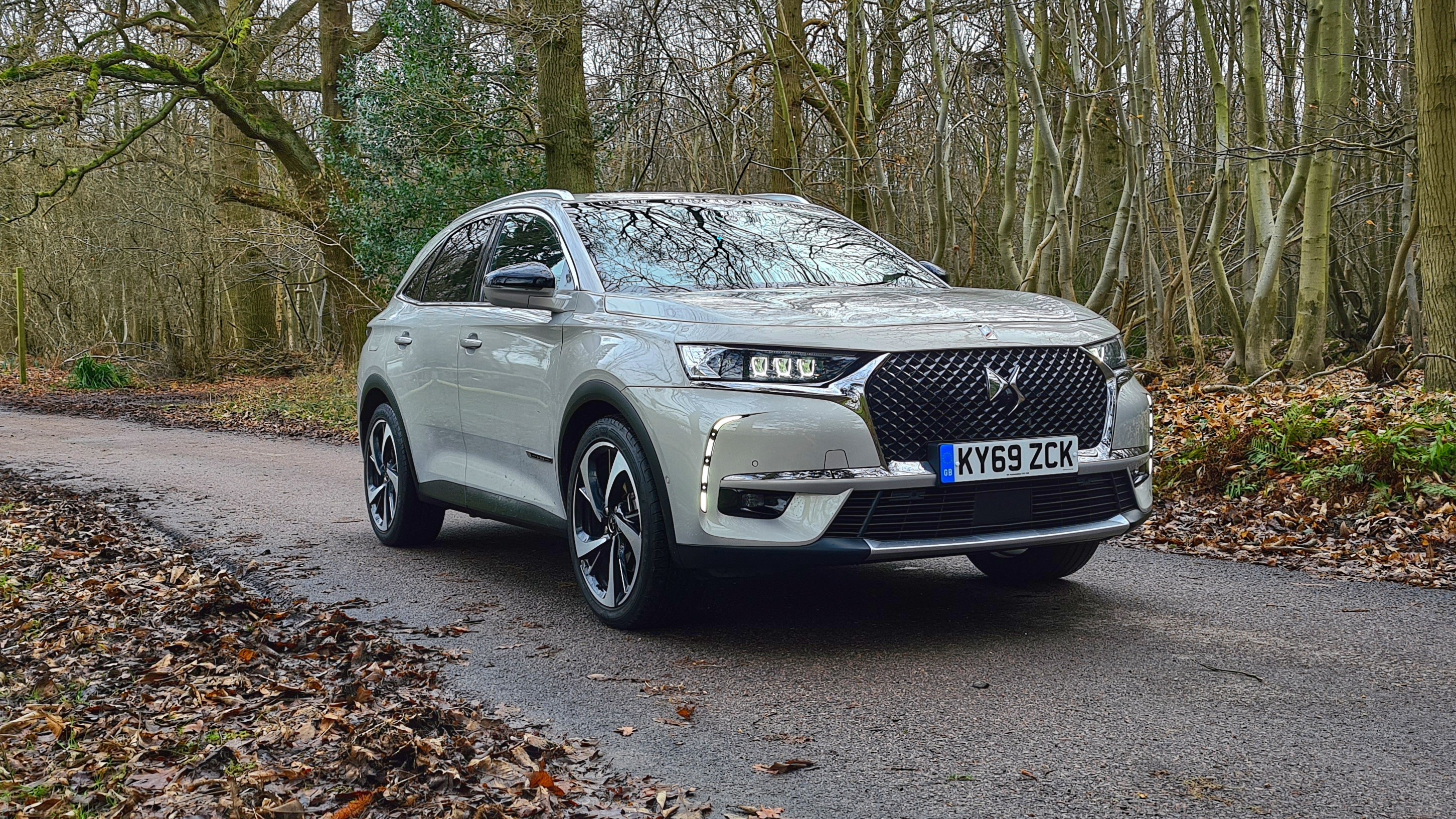
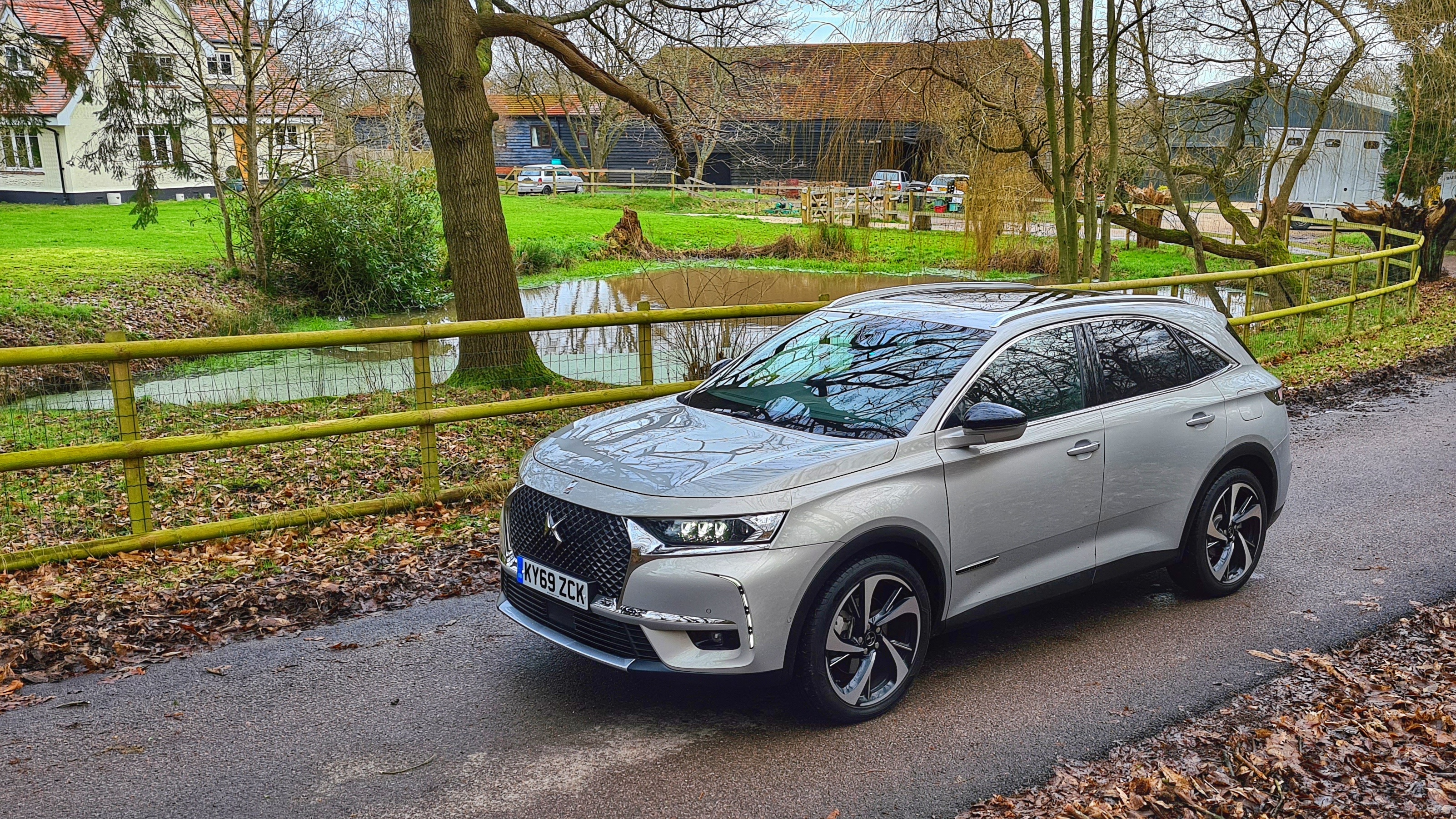
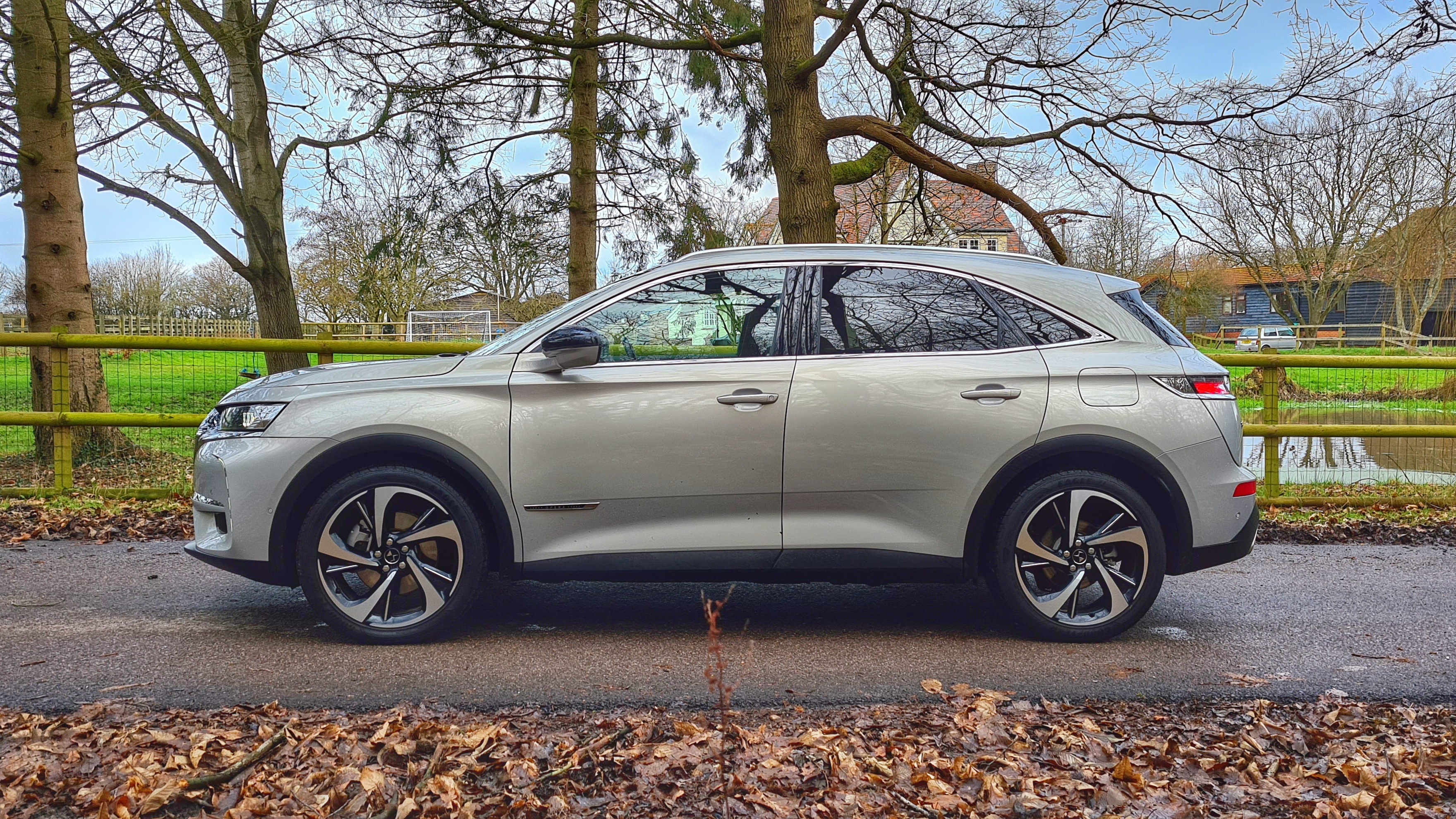
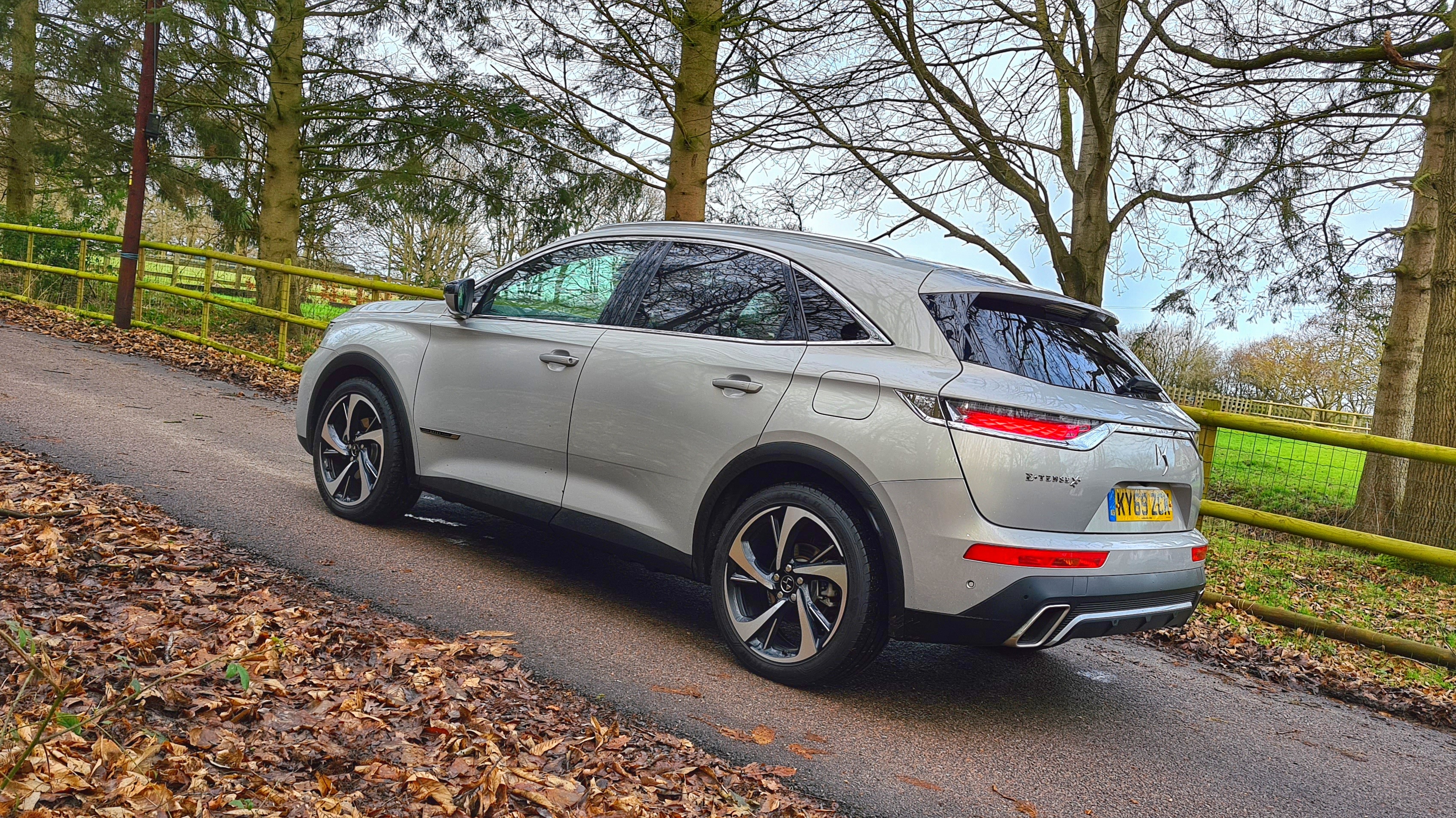
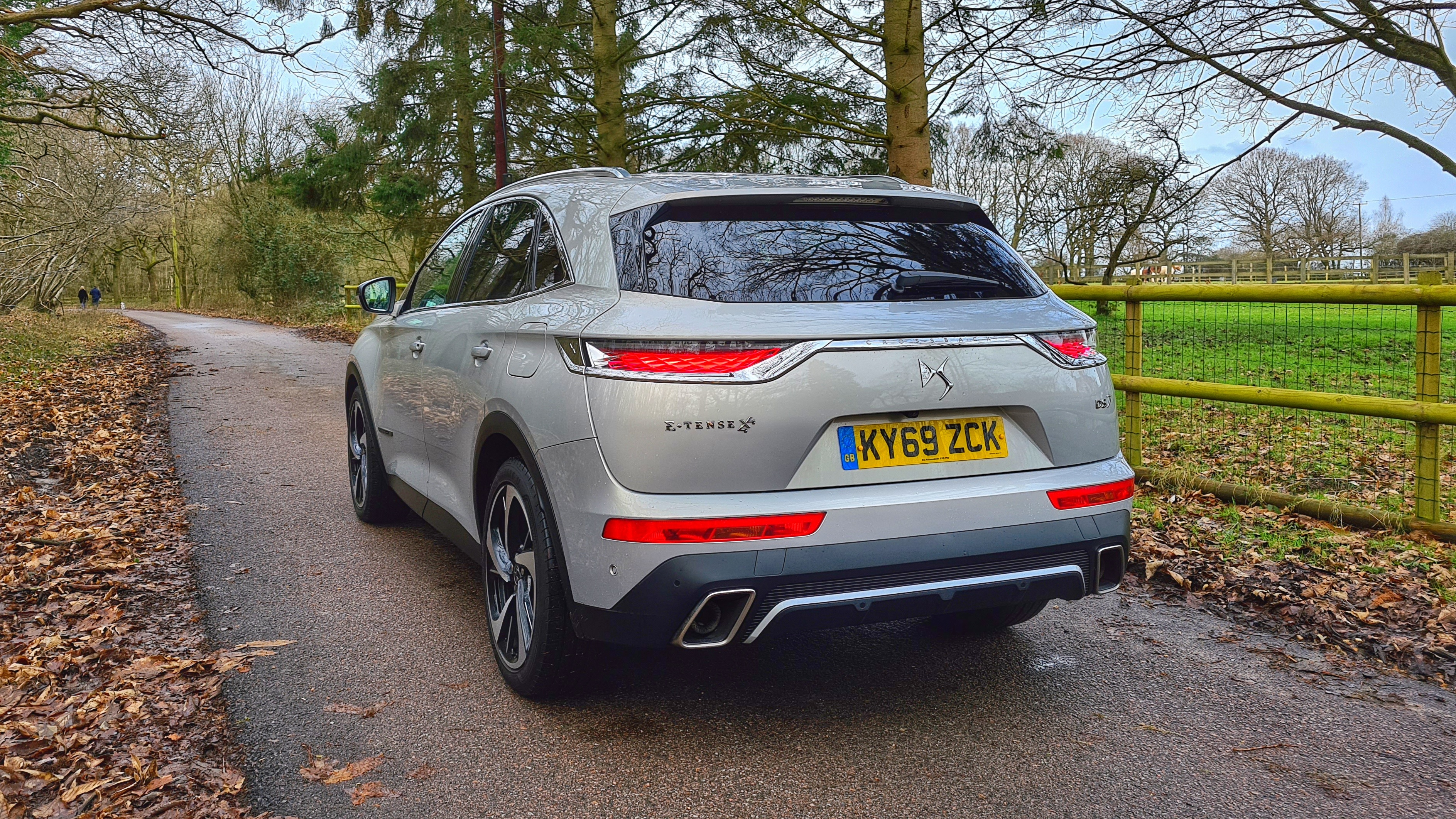
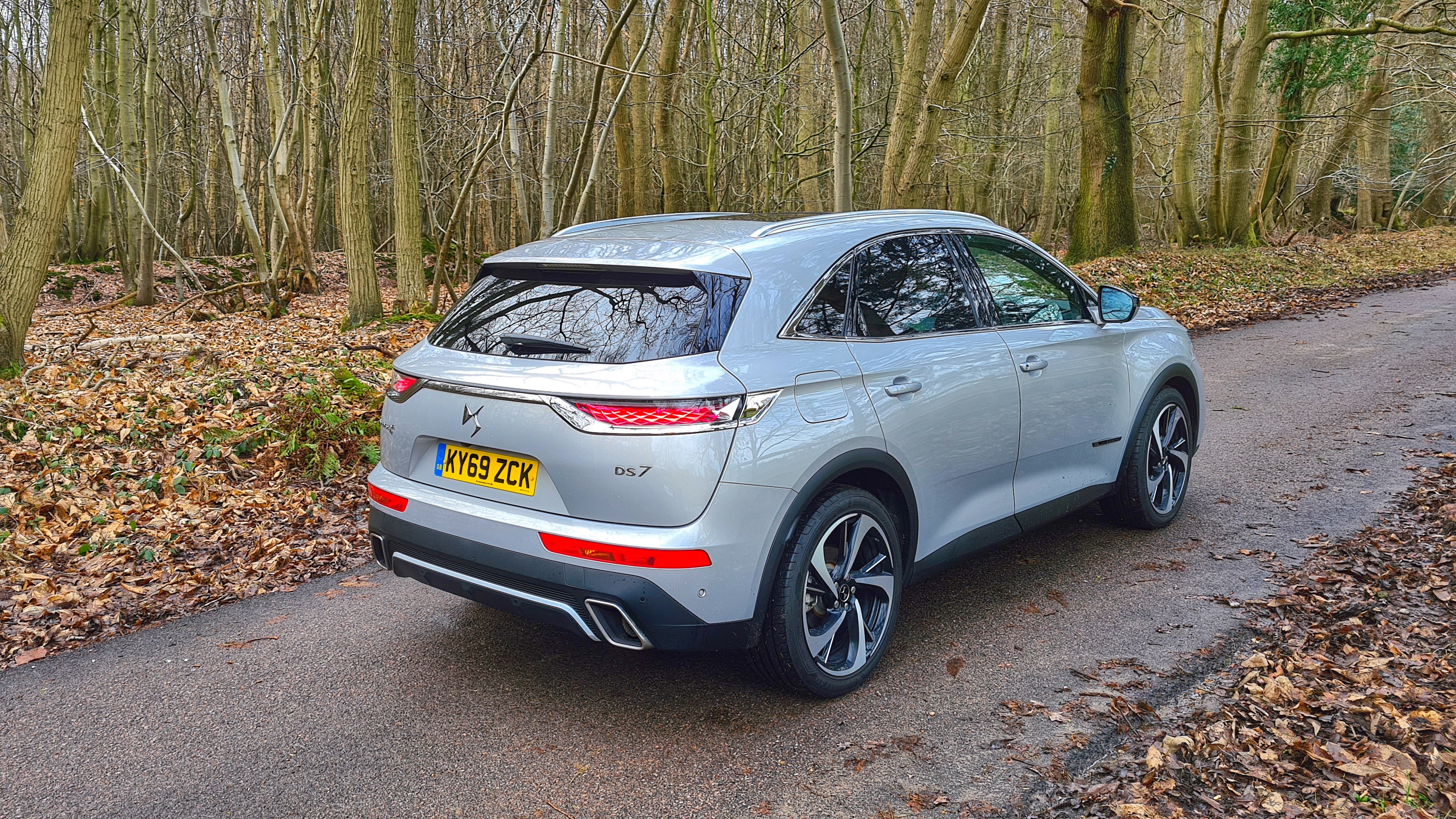
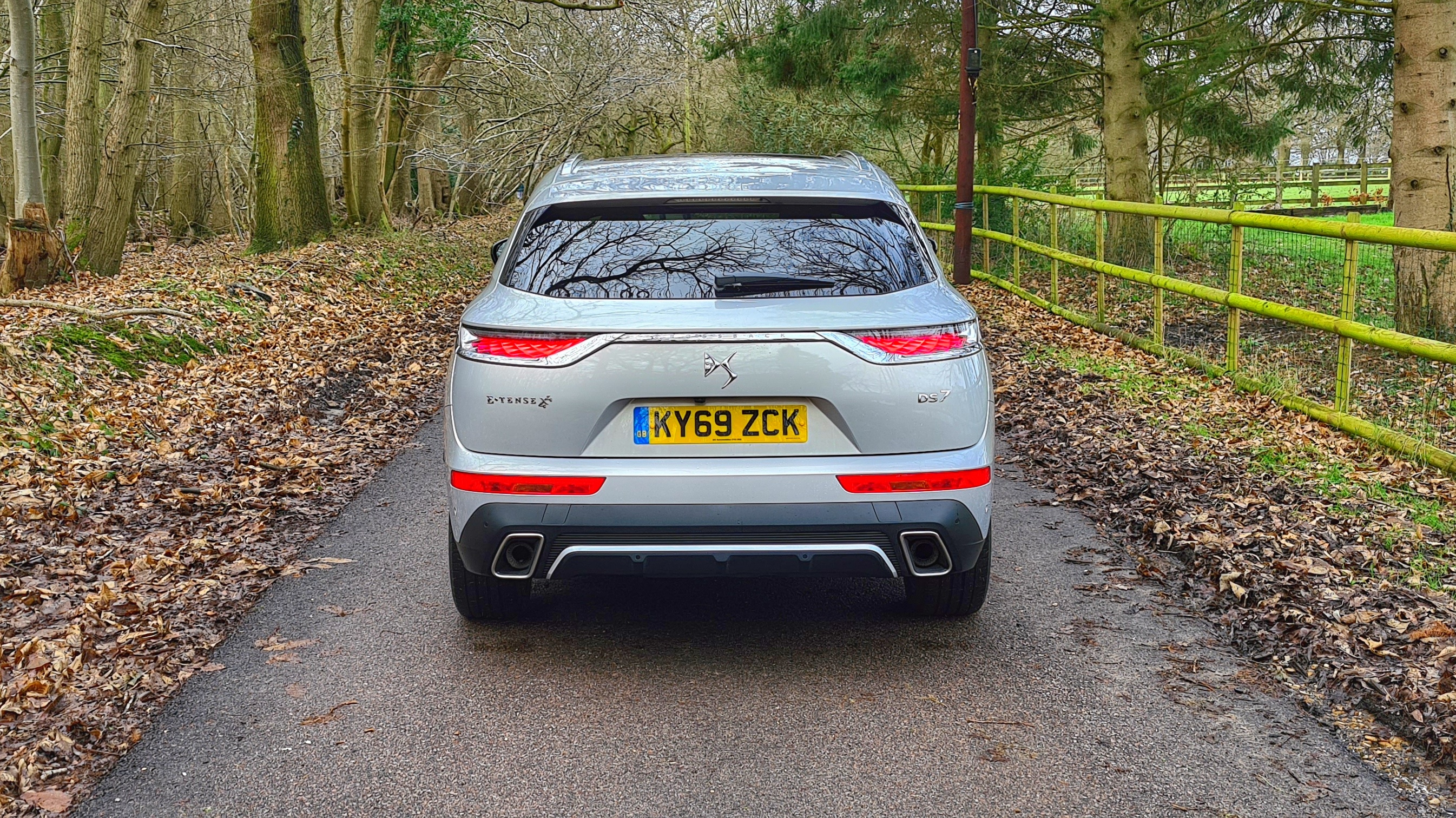
DS 7 drive and charging
The DS 7 comes with a push-button start/stop ignition, and it's located at the top of the center console. The positioning, like the window controls, isn't the most natural and it can feel like a little bit of a stretch to hit it.
We also found the button needed a surprisingly forceful push to register, as on a number occasions we pressed the button with what we believed was enough force only for the car to not start.
When you have fully depressed the button enough, the B.R.M R180 analogue clock rotates up, out of the dash above the button - another feature which is generally reserved for premium cars (see Lexus, Rolls-Royce and Bentley).
Hit the open road and the DS 7 Crossback provides a smooth, comfortable and relatively quiet ride. Acceleration from the hybrid drivetrain is as brisk as 5.2 seconds from 0-62mph, and it'll continue to cruise up to 149mph.
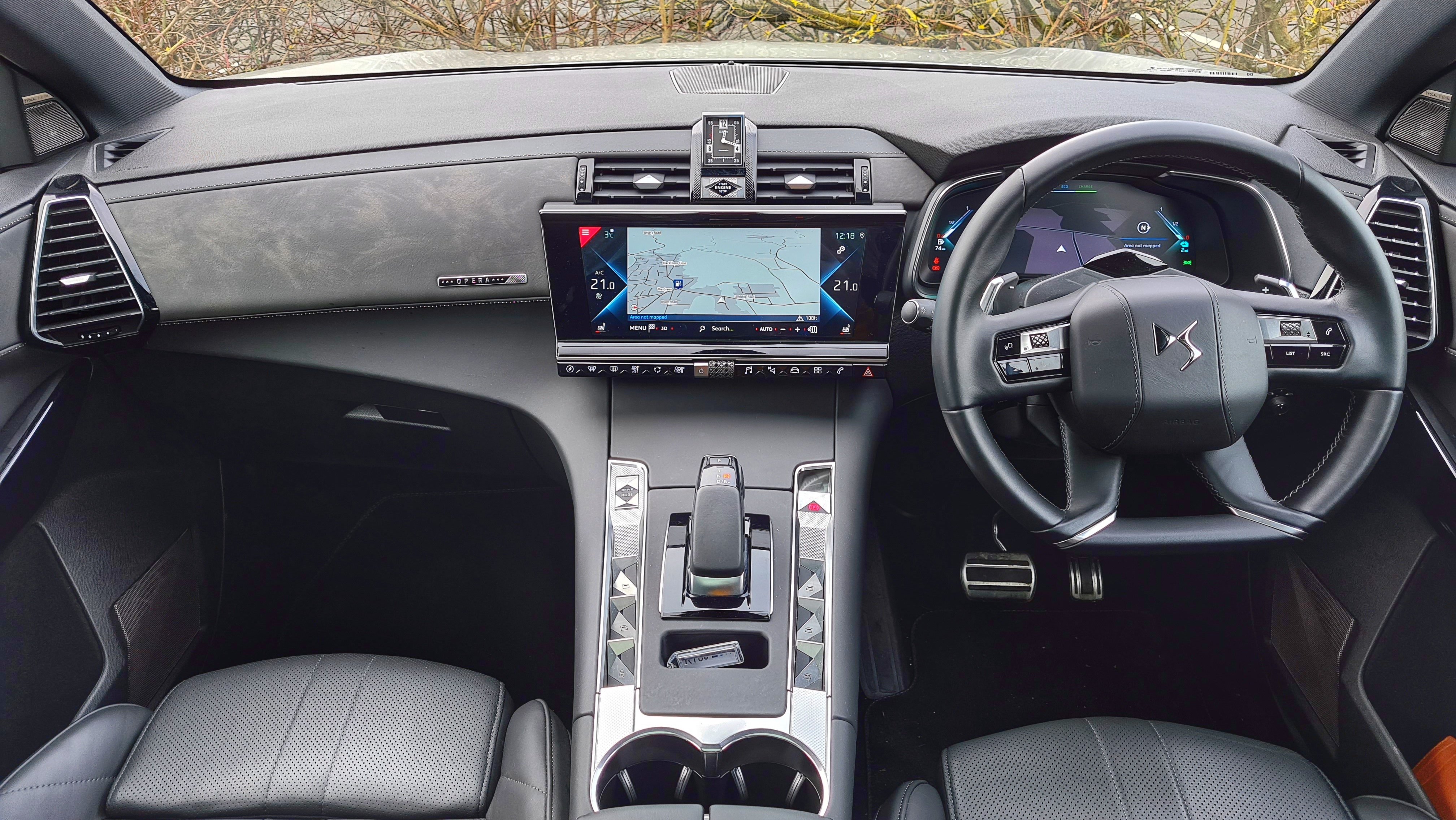
There's enough power available to easily get you away from a junction, and overtake another vehicle on a motor, and generally the DS 7 handles well for a large car.
However, the benefit of opting for the E-tense model is the plug-in hybrid engine, which sees a 13.2kW battery added to the DS 7. You can charge this battery as you would any other electric vehicle, and that includes the ability to plug it directly into a 3-pin port at your home - although it will take hours to charge.
If you have a home-charger installed, a 7.2kW flow will get you from 0% to 100% in 1 hour 45 minutes - and DS claims the 7 can travel up to 40 miles as a pure electric vehicle.
That depends very much on your driving style, and we averaged around 21 miles per charge in EV mode. That's enough to get you round town without burning any petrol, but may not stretch to your daily commute.
You don't have to force the DS 7 into EV mode though. You can opt to instead let it work out when to employ the EV power automatically - at low speeds, under braking and when a boost of acceleration is required.
It means the DS 7 is able to achieve more respectable fuel efficiency, and it will allow each tank of fuel to last a bit longer.
You can also use the petrol engine in the DS 7 to charge the battery while you're on the move - although you'll need to dip into the settings and switch to 'esave' mode. We'd have liked this option to be a little easier to access, and clearer to the driver - but once you've found out where it lives in the operating system it's simple enough to engage.
DS 7 specs and tech
The DS 7 features a large 12-inch, central infotainment display with its own custom UI which continues with the diamond patterns found throughout the cabin.
It gives the interface a different look and feel, but not always a positive one. The system feels a little sluggish when loading various aspects, and the fancy animation transitions feel like they create additional wait time.
It's also not the most intuitive in-car system we've used, but after a little while you'll settle into the core routines for navigation, audio playback and climate controls.
The satellite navigation was easy to use, and you get clear directions and a map layout option on the digital instrument cluster behind the steering wheel, which makes it easier to check the route while on the move.
Bluetooth connectivity allows you to wirelessly connect your smartphone to the infotainment system, which means you can stream audio to the car's speakers, as well as make and receive hands-free calls.
There's support for Android Auto and Apple CarPlay too, allowing you to connect your smartphone via USB cable to the DS 7 and mirror core apps - such as Apple Maps, Google Maps, Messages, WhatsApp, Spotify and more - on the car's main HD display.
We preferred the Android Auto interface over DS' own offering as it's a little quicker and easier to use overall.
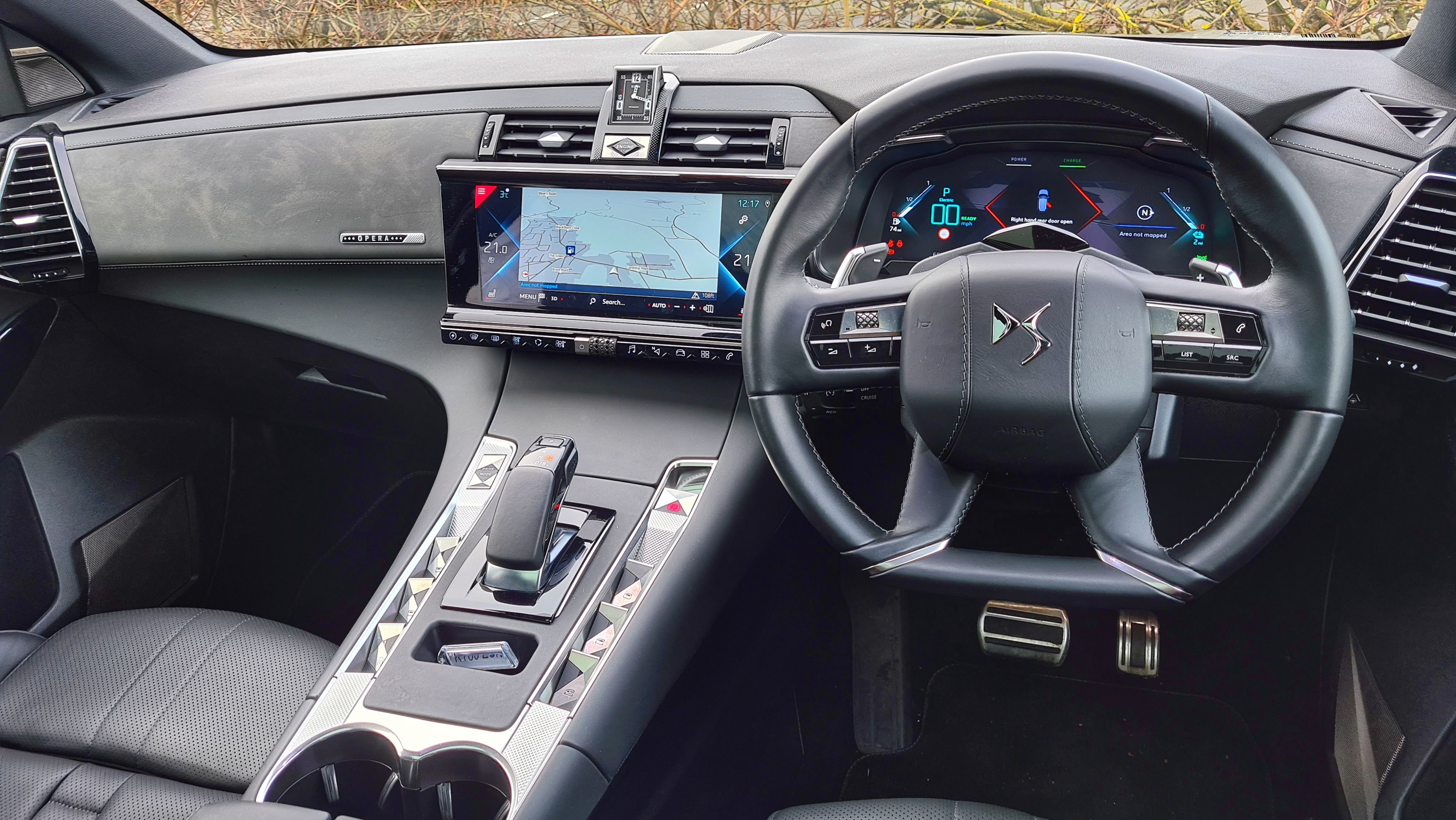
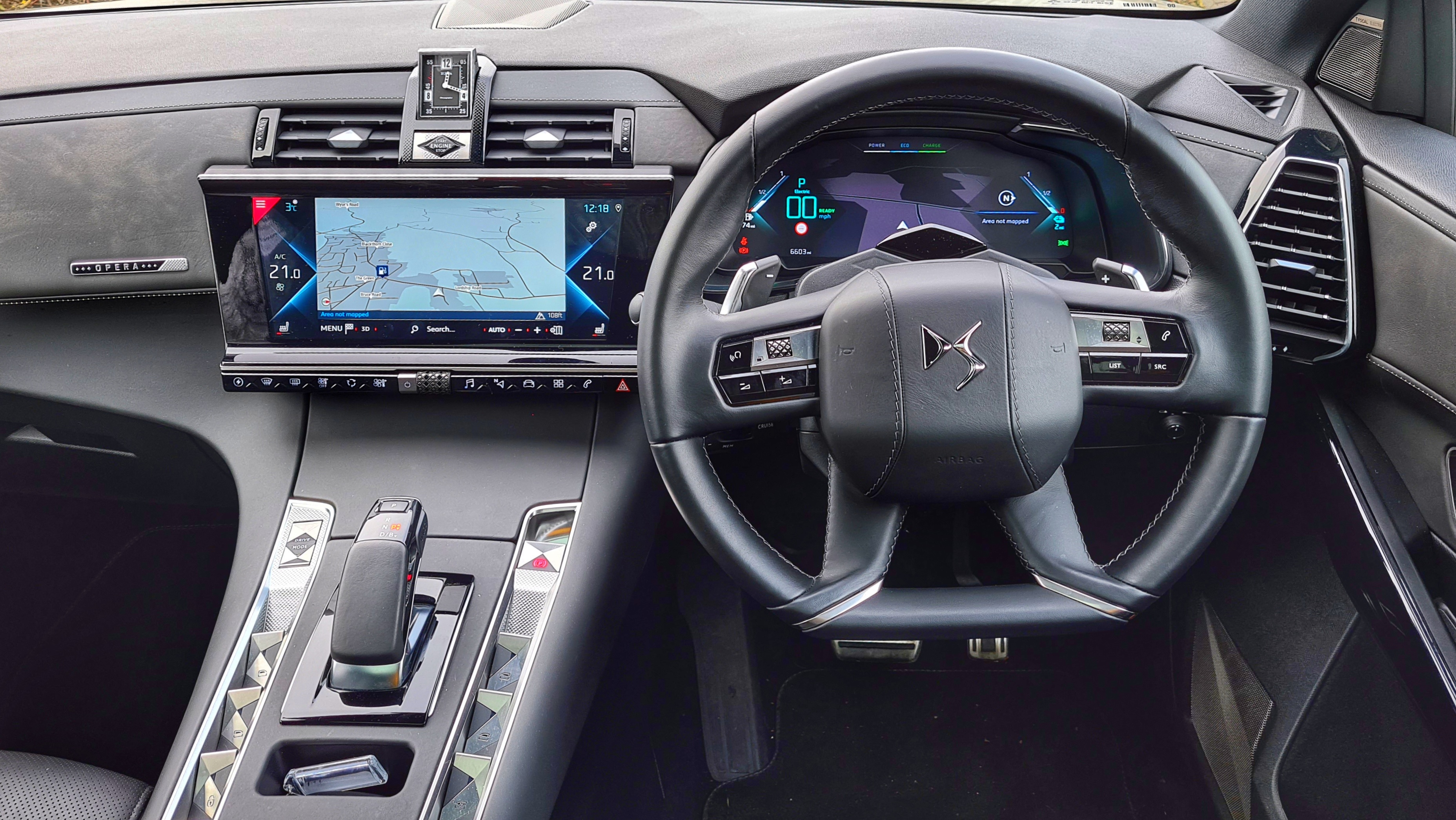
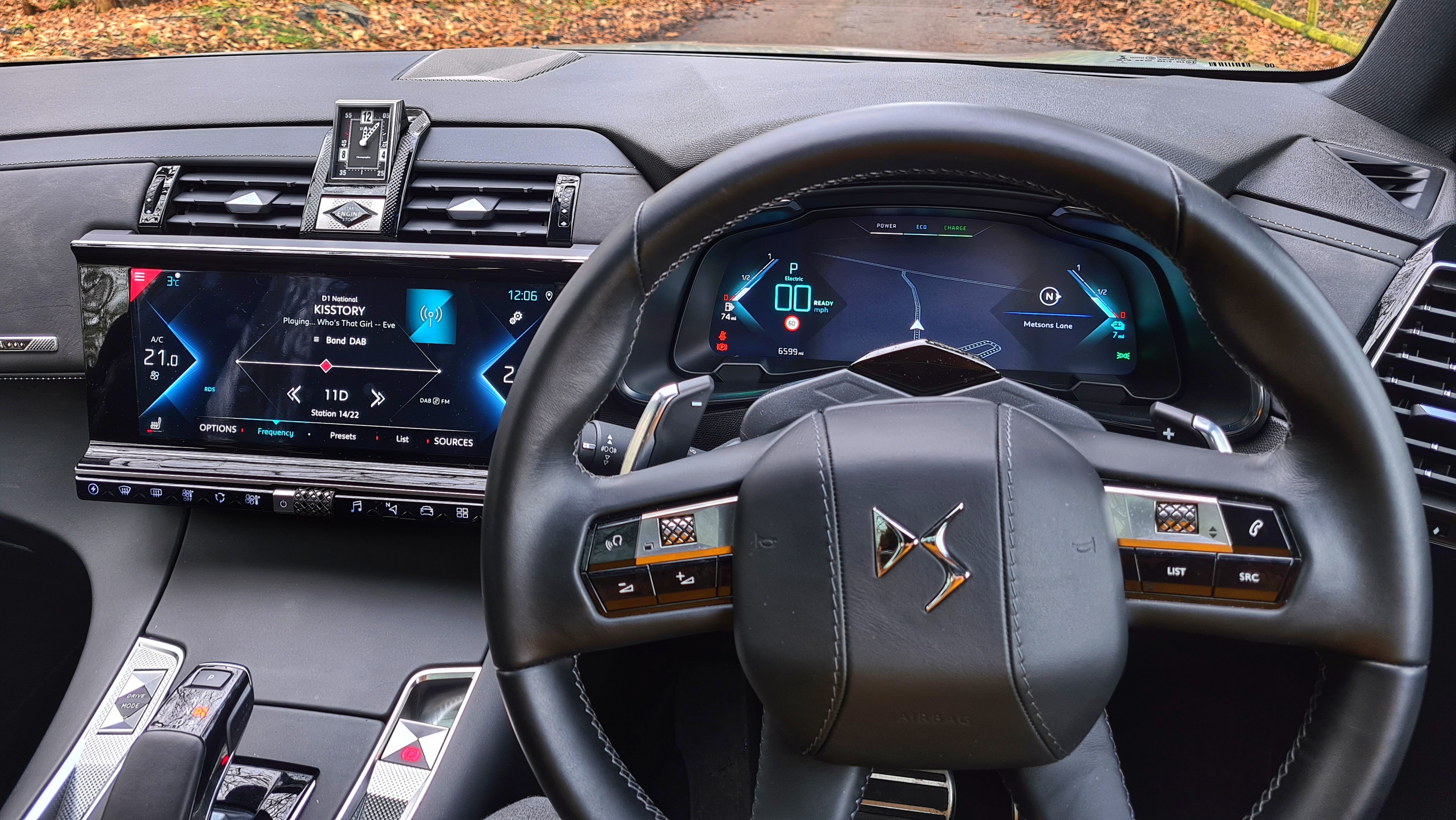
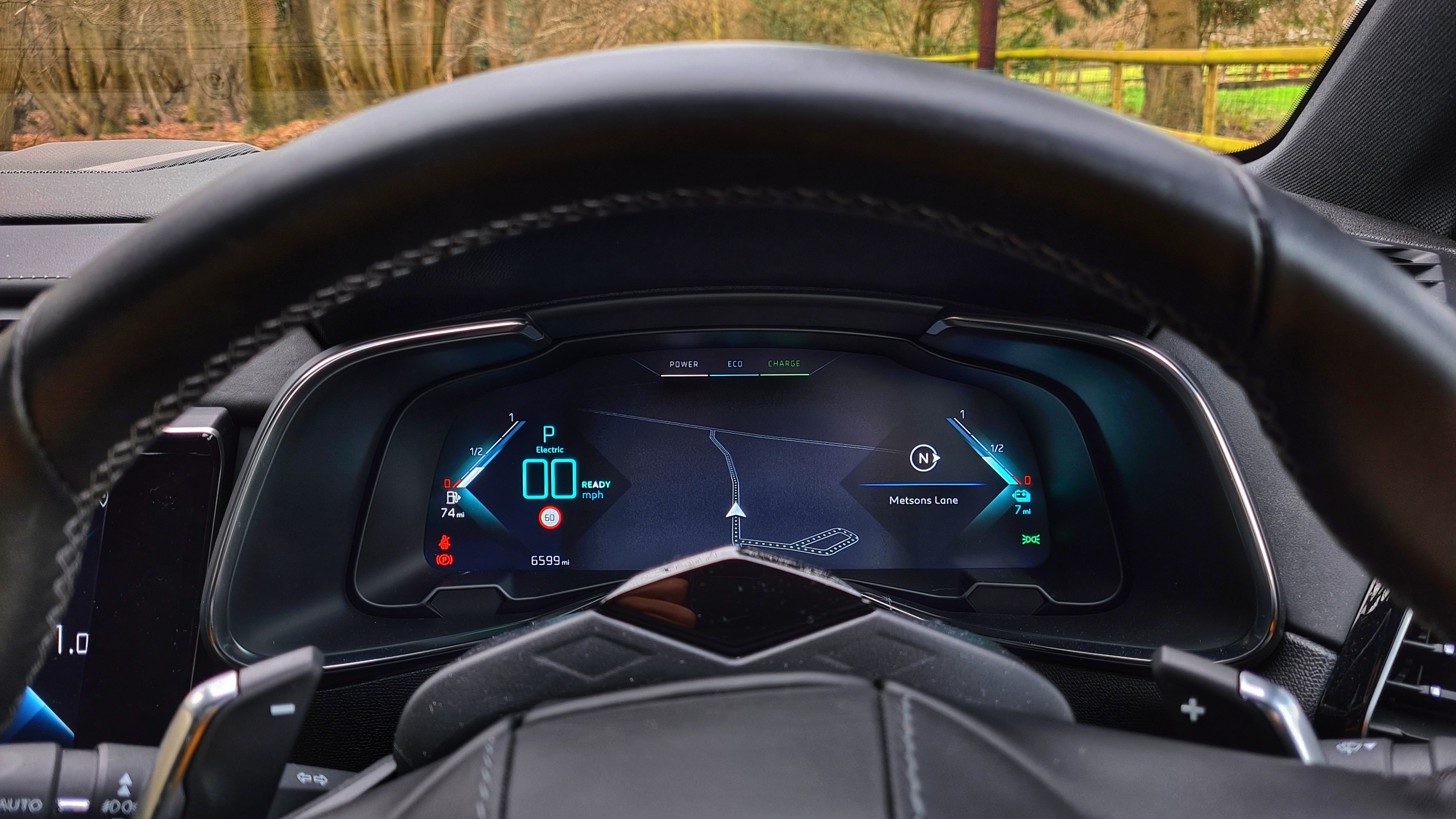
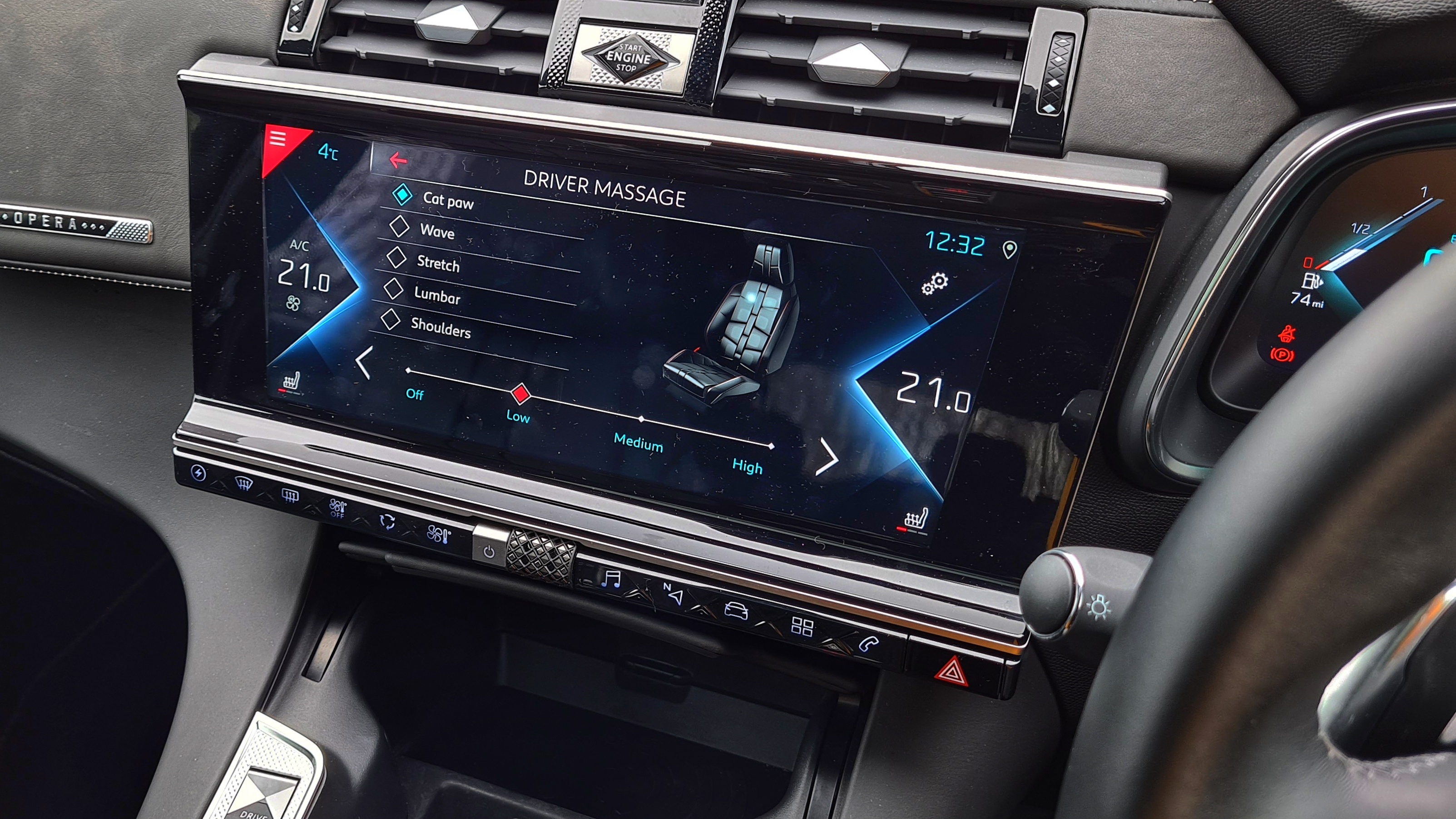
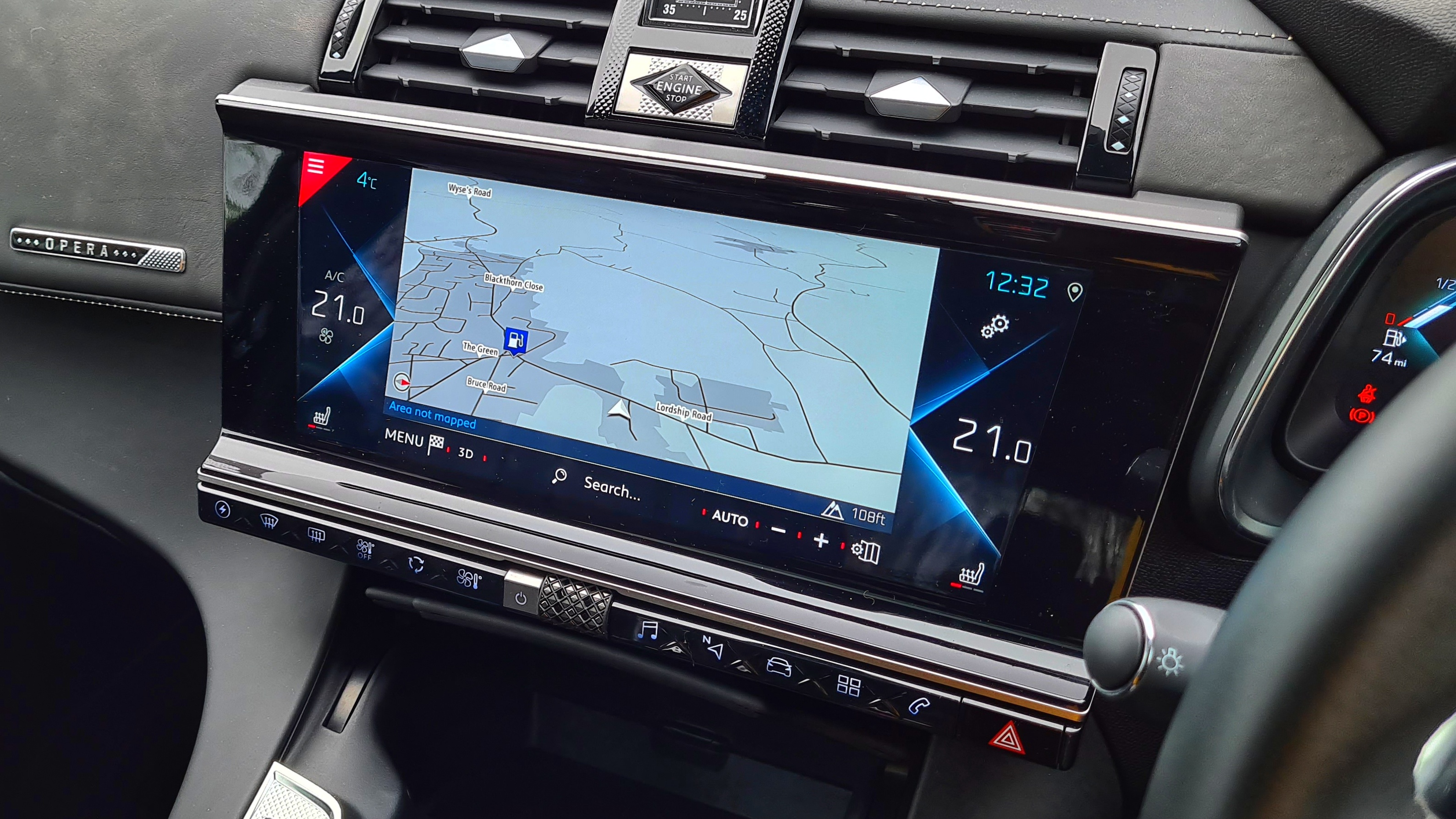
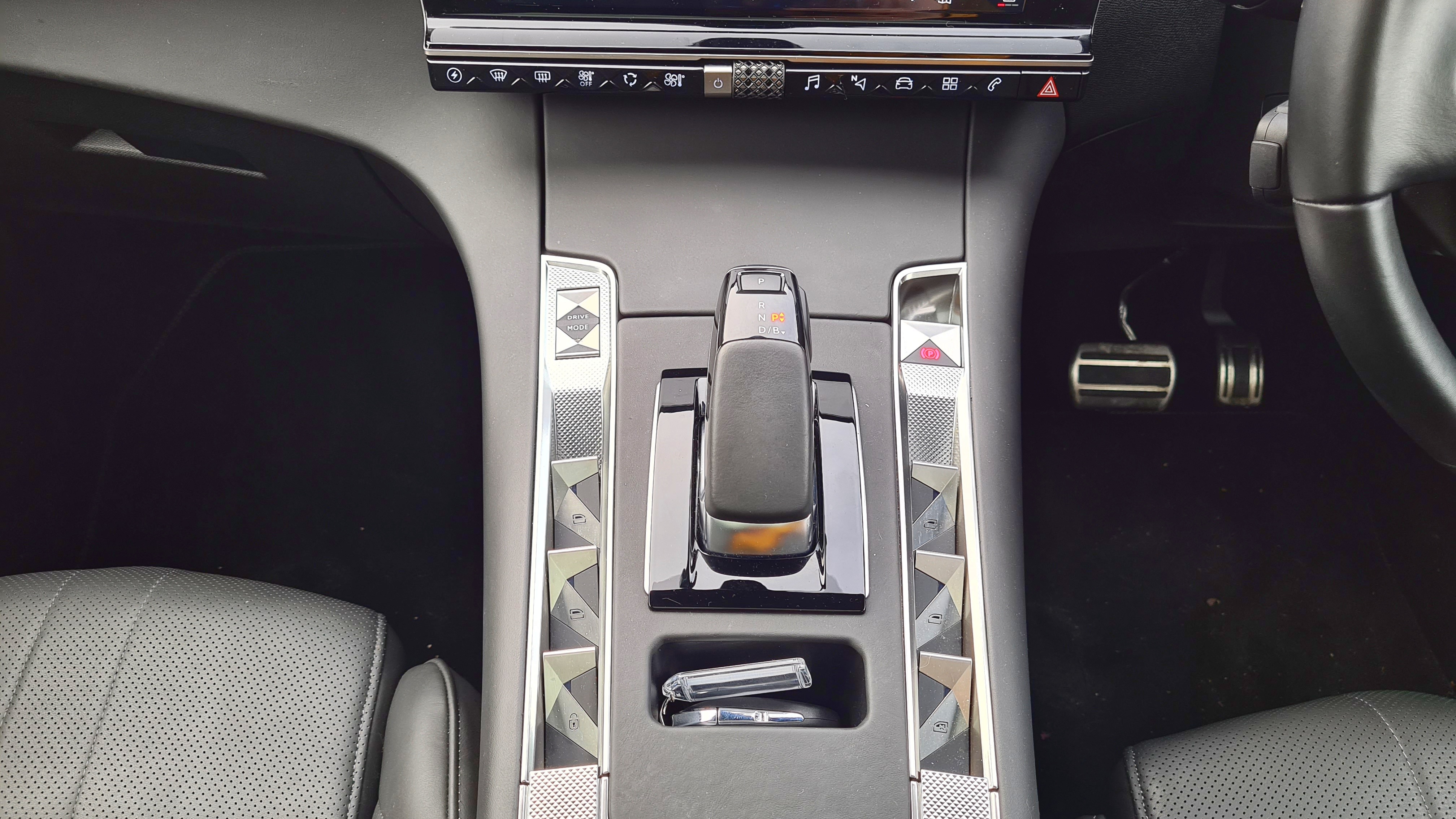
The DS 7 Crossback, however, is packed with features. Cruise control, lane assist, blind spot detection, climate control, 360 degree cameras and parking sensors are all present and correct.
The 360 degree cameras make parking and maneuvering the DS 7 in tight spots much easier, although we'd have liked to of seen a higher resolution rear camera as the visual we got was a little grainy.
A nice bonus feature, and something you don't find on too many vehicles, is the DS 7's front-facing night vision camera. This infrared camera can be activated at night and will be on alert for potential hazards you may not see when driving in the dark.
Especially useful on unlit country roads, the DS 7 was able to alert us to pedestrians, cyclists and animals at which weren't immediately obvious to the human eye. You get an alert tone and visual warning on the 12.3-inch instrument cluster display - including a live video feed from the camera showing you the potential hazard.
The system worked well, with several occasions where it spotted other people before we did.
Another big plus for the DS 7 was its sound system. Developed by Focal Electra, the eight speakers delivered powerful audio with deep base and a good range.
There's plenty of tech on offer then, a great sounding Hi-Fi system, a myriad of driving aids and a design that offers up something a little different to its premium SUV competition. The DS 7 may not be to everyone's taste, but for those looking to stand out, or experience something new, DS' luxury SUV is worth considering.

- John McCann is getting behind the wheel to give you an alternative look at the wealth of cars – and the tech inside them – available today. From super-fast sports cars to tech-packed hatchbacks, he'll take you through a range of makes, models, power and price tags in his regular TR Drives column.

TechRadar's former Global Managing Editor, John has been a technology journalist for more than a decade, and over the years has built up a vast knowledge of the tech industry. He’s interviewed CEOs from some of the world’s biggest tech firms, visited their HQs, and appeared on live TV and radio, including Sky News, BBC News, BBC World News, Al Jazeera, LBC, and BBC Radio 4.